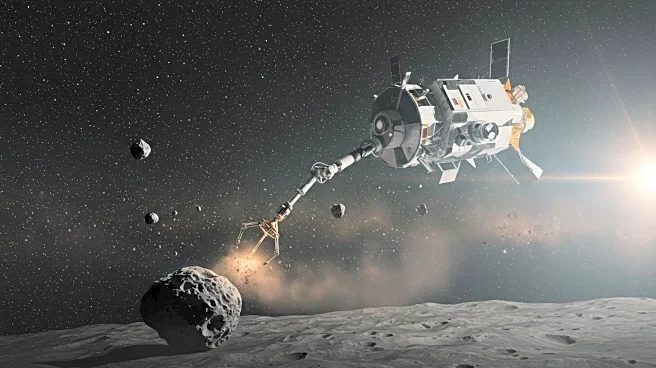What's Happening?
NASA's Osiris Rex spacecraft has successfully collected dust from the Bennu asteroid, located over 200 million miles from Earth. The material, described as 'chemically primitive,' contains presolar grains, which are stardust formed around dying stars billions of years ago. These samples offer a glimpse into the outer Solar System during the sun's formation and are more pristine than any meteorite found on Earth. The spacecraft briefly touched Bennu's surface with a robotic arm to collect 120 grams of material, which was returned to Earth in 2023. Researchers have traced the asteroid's origins back over 4.5 billion years, suggesting it formed in the outer parts of the Solar System, possibly beyond Saturn's orbit.
Why It's Important?
The discovery of presolar grains in the Bennu samples provides valuable insights into the early Solar System's conditions and the processes that led to the formation of planets. This research enhances the understanding of the building blocks of life and the environment in which planets, including Earth, were born. The findings could have significant implications for planetary science and the study of astrobiology, offering clues about the potential for life elsewhere in the universe. The mission also demonstrates NASA's capability to conduct complex space operations and return extraterrestrial materials for analysis.
Beyond the Headlines
The successful collection and analysis of Bennu's dust highlight the importance of international collaboration in space exploration. The mission involved scientists from various institutions, emphasizing the global interest in understanding the origins of the Solar System. Additionally, the research may influence future missions to other asteroids, as scientists seek to uncover more about the early universe and the potential for life beyond Earth.









